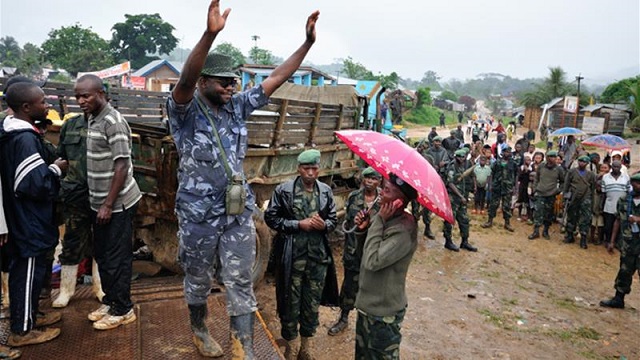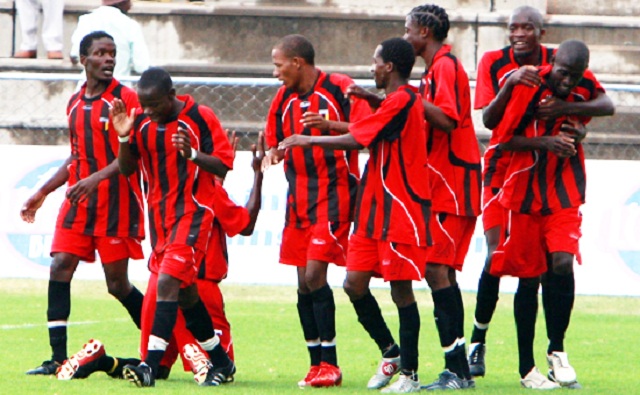US admiral ready to obey a Trump nuclear strike order

Canberra — The US Pacific Fleet commander said yesterday he would launch a nuclear strike against China next week if President Donald Trump ordered it, and warned against the military ever shifting its allegiance from its commander in chief.
Adm Scott Swift was addressing an Australian National University security conference following a major joint US-Australian military exercise off the Australian coast. The drills were monitored by a Chinese intelligence-gathering ship off northeast Australia.
Asked by an academic in the audience whether he would make a nuclear attack on China next week if Trump ordered it, Swift replied: “The answer would be yes.”
Every member of the US military had sworn an oath to obey the president as the commander in chief, Swift said.
“This is core to the American democracy and any time you have a military that is moving away from a focus and an allegiance to civilian control, then we really have a significant problem,” Swift said.
The biennial Talisman Saber exercise involved 36 warships including the aircraft carrier USS Ronald Reagan, 220 aircraft and 33 000 military personnel.
It was monitored by a Chinese People’s Liberation Army-Navy Type 815 Dongdiao-class auxiliary general intelligence vessel from within Australia’s 200-mile exclusive economic zone.
Meanwhile, Russia has retaliated to tough new sanctions proposed by the US Senate, ordering Washington to reduce its diplomatic staff in Moscow.
In a statement yesterday, Russia’s foreign ministry said the United States must reduce its staff to 455 people by September 1. It added that it was seizing a compound and warehouse used by US diplomats.
“We propose to the US side to bring the number of diplomatic and technical staff working in the US embassy in Moscow and the consulates general … in exact accordance with the number of Russian diplomats and technical staff in the US,” the statement said.
The sanctions, outlined in a new bill passed on Thursday, violated international law and demonstrated “extreme aggression of US in international affairs”, Russia said.
It also warned the US it would respond in kind if Washington decided to expel any Russian diplomats.
The sanctions against Moscow are punishment for its alleged meddling in the 2016 presidential election and its military actions in Ukraine and Syria.
According to the bill, US President Donald Trump would be barred from easing the Russia sanctions without first getting permission from Congress, a demand that could imperil his bid for better relations with Moscow.
l Japan will impose additional sanctions on North Korea for its weapons programmes, Foreign Minister Fumio Kishida said yesterday, just hours after the US Senate also voted for new sanctions on the secretive state.
US media reported this week that the Defence Intelligence Agency (DIA), the Pentagon spy agency, had assessed that North Korea would be able to field a nuclear-capable intercontinental ballistic missile (ICBM) by next year, earlier than previously thought.
Kishida told reporters that given the increasing threat posed by North Korea’s missiles and the fact that no concrete proposals have been made to resolve the issue of Japanese citizens abducted decades ago by agents from the North, the steps had to be taken.
“Given that we can’t expect meaningful dialogue, pressure on them is essential,” he said.
Japan will be taking steps to freeze the assets of five groups, including two from China, as well as nine individuals, Kishida said but did not give further details.
Chief Cabinet Secretary Yoshihide Suga told a news conference that the groups had “engaged in activities prohibited by a UN Security Council resolution.”
Kishida said Japan had been in contact with key allies such as the United States and South Korea, but gave no further details.
The US Senate voted overwhelmingly on Thursday to slap new sanctions on North Korea, Iran and Russia, including seeking to punish foreign banks that do business with North Korea.
North Korea has been under UN sanctions since 2006 over its ballistic missile and nuclear programmes and the Security Council has ratcheted up the measures in response to five nuclear weapons tests and a series of missile launches.
The US is seeking further sanctions after North Korea tested a missile this month that was believed to be an ICBM. — AFP









Comments